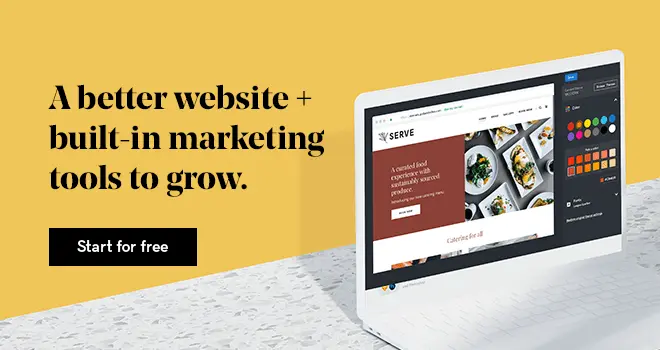Marketing is essential for every small business, but for many entrepreneurs in Egypt, it can feel overwhelming. With intense competition and limited resources, getting your business noticed, attracting new customers, and growing your brand can seem like a big challenge. Whether you own a café, run an online shop, or offer professional services, the right marketing approach makes all the difference.
But here’s the good news: marketing your small business doesn’t have to be complicated or expensive. In this guide, we’ll walk you through practical steps and affordable tools that can help your business grow. You’ll learn how to connect with your ideal customers, make the most of your marketing budget, and turn challenges into opportunities.
Let’s dive in and discover how you can build lasting relationships, find your best-fit customers, and see real results—with less stress and more confidence.
What is small business marketing?
Small business marketing is all about promoting your products or services to the right people. This can involve advertising, social media, public relations, and special promotions. For entrepreneurs in Egypt, smart marketing helps you stand out, attract loyal customers, and build a memorable brand.
Unlike large companies with big marketing budgets, small businesses need to be creative and resourceful. Building relationships in your community and establishing a strong online presence are key strategies for long-term success.
Editor's Note: Want to attract new customers? Check out our guide on how to market your small business with customer giveaways.
Why marketing matters for small businesses in Egypt
Effective marketing helps your business shine in a crowded marketplace. With Egypt’s large population and thriving business scene, the right marketing strategy can help you get noticed, keep customers coming back, and adapt to changing trends—especially as more people turn to the internet and social media.
Marketing also builds trust and loyalty. When you offer real value, your customers are more likely to recommend you to friends and family—a powerful way to grow your business.
How to create a strong marketing strategy in Egypt?
Building a strong marketing strategy requires careful planning and execution.
1. Define your target audience
Understand who your ideal customers are. Consider age, gender, location, income, and interests. This helps you craft messages that truly resonate and choose the most effective marketing channels.
Consider factors such as age, gender, location, income level, and interests. By focusing on a specific group of people, you can create more personalized and impactful marketing campaigns.
2. Set clear marketing goals
Setting clear and measurable marketing goals is essential for any business. Goals help you track your progress and ensure that your marketing efforts align with your overall business objectives.
For small businesses in Egypt, marketing goals might include increasing brand awareness, boosting sales, or growing your online presence. Make sure your goals are specific, measurable, achievable, relevant, and time-bound (SMART).
3. Craft a unique value proposition (UVP)
Your UVP should clearly explain what sets you apart from the competition. Focus on the key benefits your business offers and why customers should choose you.
In Egypt’s crowded market, having a compelling UVP can help you grab the attention of your audience and convert them into loyal customers.
How to create a marketing plan for small businesses in Egypt?
Once you have your marketing strategy in place, the next step is to create a detailed marketing plan. This plan will guide your marketing efforts and help you stay organized.
1. Conducting market research
Market research is the process of gathering information about your industry, competitors, and customers. It provides insights that help you make informed decisions about your marketing efforts. In Egypt, market research can help small businesses identify emerging trends, understand customer preferences, and pinpoint potential gaps in the market. This will allow you to tailor your products and marketing efforts to meet customer needs.
2. Choosing the right marketing channels
Choosing the right marketing channels is key to reaching your target audience effectively. In Egypt, popular marketing channels include social media, email marketing, and search engine optimization (SEO). Consider where your audience spends their time and which platforms they trust. Whether it’s Facebook, Instagram, Google, or other platforms, selecting the right channels will help you optimize your marketing efforts and maximize results.
3. Budgeting and resource allocation
Marketing campaigns require both time and money. Small businesses in Egypt often have limited resources, so it is essential to allocate your marketing budget wisely. Prioritize strategies that provide the best return on investment (ROI). Allocate funds for paid advertising, content creation, and marketing tools that can help you track performance and optimize campaigns.
4. Implementation and execution
After planning, the next step is execution. This involves creating the necessary materials, launching campaigns, and ensuring that everything runs smoothly. Consistent execution is key to keeping your marketing efforts on track and achieving the goals you have set. Use project management tools to help keep your team organized and ensure that tasks are completed on time.
5. Monitoring and adjusting strategies
Marketing is not a set-it-and-forget-it process. It’s important to monitor your campaigns and adjust them based on performance. Tracking key performance indicators (KPIs) will help you understand what’s working and what needs improvement. In Egypt, as in other markets, staying flexible and adapting to changes will ensure your marketing efforts stay relevant and effective.
Read Also: Steps to create marketing plan for your business
Top online marketing strategies for small businesses in Egypt
In Egypt, the rise of digital technology and internet use has opened up many opportunities for small businesses to market their products and services online. Here are some of the best online marketing strategies for small businesses in Egypt:
1. Build a professional website
Having a professional website is the foundation of any online marketing strategy. Your website serves as your business’s online storefront, providing customers with information about your products, services, and brand. It should be easy to navigate, mobile-friendly, and optimized for search engines. Make sure to include contact information, customer testimonials, and clear calls to action (CTAs) to encourage engagement.
Start for free with GoDaddy and create a professional optimized website that'll take your business further, with built-in SEO tools.
2. Search engine optimization (SEO)
Search engine optimization (SEO) is the process of improving your website’s visibility on search engines like Google. In Egypt, many consumers turn to search engines to find products and services. By optimizing your website with relevant keywords, quality content, and technical SEO practices, you can improve your chances of ranking higher in search results and attracting more organic traffic.
GoDaddy’s SEO tools and services make it easy to boost your online presence, whether you’re a beginner or looking for expert support.
3. Leveraging social media for brand awareness
Social media platforms like Facebook, Instagram, and Twitter are widely used in Egypt, making them ideal for promoting your business. Using social media marketing helps build brand awareness, engage with customers, and drive traffic to your website. Consistent posting, interactive content, and responding to customer inquiries are essential for building a strong online presence.
4. Email and WhatsApp marketing for direct customer engagement
Email and WhatsApp marketing are effective tools for directly reaching your customers. These channels allow you to send personalized messages, promotions, and updates to your audience. In Egypt, businesses can use email and WhatsApp campaigns to nurture relationships, encourage repeat purchases, and drive customer loyalty.
5. Content marketing for long-term growth
Content marketing involves creating valuable content that educates, informs, or entertains your audience. This can include blog posts, videos, infographics, and more. By providing useful content, small businesses in Egypt can build trust with their audience, improve their search engine rankings, and position themselves as industry leaders.
Related: How to increase website traffic with existing content
6. Use paid advertising for fast results
Paid advertising, such as Google Ads or Facebook Ads, is a great way to get quick results and reach a wider audience. By targeting specific demographics and interests, businesses can generate immediate traffic and sales. Paid ads can be especially useful for small businesses with a limited marketing budget, as they offer precise targeting and flexible spending options.
Read Also: How to market for small business?
How to market your business with a small budget in Egypt?
Marketing on a small budget can be challenging, but it is possible with the right strategies. Here are some cost-effective ways to market your business in Egypt:
1. Using word-of-mouth and referral programs
Word-of-mouth marketing is one of the most effective ways to grow a small business. Encourage your satisfied customers to refer others by offering incentives such as discounts or free products. Referral programs can be a low-cost way to increase brand awareness and gain new customers.
2. Partnering with micro-influencers
Influencer marketing has become popular in Egypt, and partnering with micro-influencers can help boost your business's reach. Choose influencers who align with your brand and have a loyal following in your target market. This can be a cost-effective way to gain exposure and build credibility.
Read Also: Arab social media influencers
3. Hosting events and webinars for brand exposure
Hosting local events or online webinars is an excellent way to market your business and connect with potential customers. In Egypt, events can be a great way to network and build relationships within the local community. Webinars offer an affordable way to educate and engage with a broader audience.
4. Use community engagement and local partnerships
Building relationships with your local community and partnering with other businesses can help you grow your brand. Sponsor local events, collaborate with other businesses on promotions, and engage with your customers through social media or in-person events.
How do you measure and optimize marketing performance?
Measuring and optimizing your marketing efforts is crucial for ensuring long-term success. Here are some ways to evaluate your marketing performance:
Key metrics for evaluating marketing success
Some of the key metrics for measuring marketing success include website traffic, conversion rates, customer acquisition cost, and return on investment (ROI). By tracking these metrics, you can assess whether your marketing strategies are effective or need improvement.
Using analytics tools for performance monitoring
Google Analytics, social media insights, and other analytics tools provide valuable data on your marketing campaigns. These tools allow you to track user behavior, understand which channels are performing well, and identify areas for improvement.
Read Also: How to set up google analytics
A/B testing and continuous strategy refinement
A/B testing involves comparing two versions of a campaign to see which performs better. Regularly testing different elements of your marketing campaigns, such as subject lines, visuals, and messaging, can help optimize results.
Gathering customer feedback for improvement
Customer feedback is invaluable for improving your marketing efforts. Regularly ask your customers for their opinions through surveys, reviews, and social media engagement. Use this feedback to make informed decisions and refine your marketing strategies.
What are future trends in small business marketing in Egypt?
As technology and consumer behavior evolve, small businesses in Egypt must stay ahead of emerging trends to remain competitive. Here are some key future trends shaping small business marketing in Egypt:
1. AI and automation for smarter marketing
Artificial Intelligence (AI) and automation are revolutionizing how small businesses approach marketing. AI can analyze customer data, predict behaviors, and even automate marketing tasks like social media posting and email campaigns.
For small businesses in Egypt, adopting AI tools can lead to more efficient marketing, personalized customer experiences, and improved ROI. Automation can also streamline processes such as lead nurturing and customer support, allowing businesses to focus on strategic growth.
Read Also: Social media marketing for small business
2. Personalized and hyper-targeted marketing campaigns
Consumers in Egypt are becoming more selective about the brands they engage with. This shift is driving small businesses to adopt personalized and hyper-targeted marketing strategies.
By using customer data and insights, businesses can craft tailored marketing messages and offers. Personalization enhances customer loyalty and boosts conversion rates, as consumers feel that businesses understand their needs and preferences.
3. The growth of video and live streaming
Video content is becoming increasingly popular among Egyptian consumers, making it a vital marketing tool for small businesses. Whether through YouTube, Instagram, or Facebook, businesses can use video to showcase products, share customer testimonials, and engage with their audience.
Live streaming is also growing in popularity, with businesses using platforms like Facebook Live or Instagram Live to connect with consumers in real time. These platforms allow businesses to host live events, product launches, and Q&A sessions, driving engagement and brand awareness.
4. The impact of voice search on local SEO
As voice search technology becomes more common, small businesses in Egypt must adapt their SEO strategies. Voice search is revolutionizing how consumers search for products and services, with many using voice assistants like Google Assistant or Amazon Alexa to find local businesses.
Optimizing your website for voice search and incorporating local SEO strategies, such as using conversational keywords and addressing local queries, will help businesses attract more traffic from voice searches.
Related: Keyword research tools to boost your SEO
5. Sustainable and ethical marketing for customer trust
Sustainability and ethics are becoming significant factors in consumers' purchasing decisions. As awareness of environmental and social issues grows, small businesses in Egypt are increasingly focusing on sustainable and ethical marketing practices.
This includes highlighting eco-friendly products, ethical sourcing, and transparency in business operations. Consumers are more likely to support businesses that align with their values, making sustainable marketing an essential trend for future success.
Frequently Asked Questions (FAQs) on small business marketing in Egypt
1. What is the average cost for marketing in small businesses?
The cost of marketing for small businesses in Egypt can vary widely depending on the size of the business, marketing goals, and chosen strategies. On average, small businesses may spend anywhere from 5% to 10% of their revenue on marketing.
However, for businesses on a tighter budget, cost-effective strategies such as social media marketing, SEO, and email campaigns can be implemented to keep costs manageable.
2. What are the best free marketing tools for Egyptian small businesses?
Several free marketing tools can help Egyptian small businesses get started without breaking the bank. Some popular options include:
- Canva – A graphic design tool for creating eye-catching visuals for social media, ads, and website content.
- Mailchimp – A free email marketing tool for sending campaigns and automating emails.
- Google Analytics – Provides insights into website traffic and user behavior, helping businesses optimize their online presence.
- Buffer – A social media scheduling tool for managing posts across platforms like Facebook, Instagram, and Twitter.
3. What social media platforms work best in Egypt?
In Egypt, the most popular social media platforms for small businesses include:
- Facebook – A dominant platform for businesses to engage with customers, share content, and run paid ads.
- Instagram – Widely used for visual content, including product photos, stories, and influencer marketing.
- TikTok – A growing platform for short-form video content, ideal for brand awareness and creative campaigns.
- Twitter – Used for customer service, news, and quick updates.
- LinkedIn – Especially beneficial for B2B marketing and building professional networks.
Choosing the right platform depends on the type of business, target audience, and content style.
Read Also: Guide to TikTok marketing for small business
4. How can small businesses advertise affordably?
Small businesses in Egypt can use several affordable advertising methods, such as:
- Social Media Ads – Platforms like Facebook and Instagram offer cost-effective ad targeting based on demographics and interests.
- Influencer Partnerships – Collaborate with local influencers or micro-influencers can help increase brand visibility at a lower cost.
- Search Engine Optimization (SEO) – Optimizing your website to rank higher on Google can generate organic traffic without the need for paid ads.
- Referral Programs – Encourage customers to refer others in exchange for discounts or rewards.
- Email Marketing – Use tools like Mailchimp to send personalized offers and promotions to your customer list.
Read Also: How to make social media work for your business
5. What is the most cost-effective paid advertising method?
The most cost-effective paid advertising method for small businesses in Egypt is often Facebook Ads. With a large user base in Egypt, Facebook allows businesses to target specific demographics, behaviors, and interests, making it easy to reach your ideal customers on a budget.
Instagram, which is owned by Facebook, also offers similar targeting features, and businesses can create ads using photos, videos, and carousel formats. Another affordable option is Google Ads, particularly if you're targeting local customers through search ads.
Related: How to take product photos that will help sell your goods
6. How do Egyptian consumers prefer to pay online?
Egyptian consumers prefer a variety of online payment methods, with mobile wallets and cash on delivery (COD) being particularly popular. The most common online payment methods include:
- Fawry – A local electronic payment system widely used in Egypt for bill payments and online purchases.
- PayPal – A global option, although less commonly used in Egypt compared to other payment methods.
- Visa and Mastercard – Credit and debit card payments are also common for online transactions.
- Cash on Delivery (COD) – A preferred payment method for many Egyptians, where customers pay for goods upon delivery.
7. Which business is most profitable in Egypt?
The most profitable businesses in Egypt often depend on local demand and market trends. However, sectors such as e-commerce, real estate, food and beverage, and healthcare have seen significant growth and profitability in recent years. Additionally, technology services, education, and tourism also present lucrative opportunities for small businesses.









